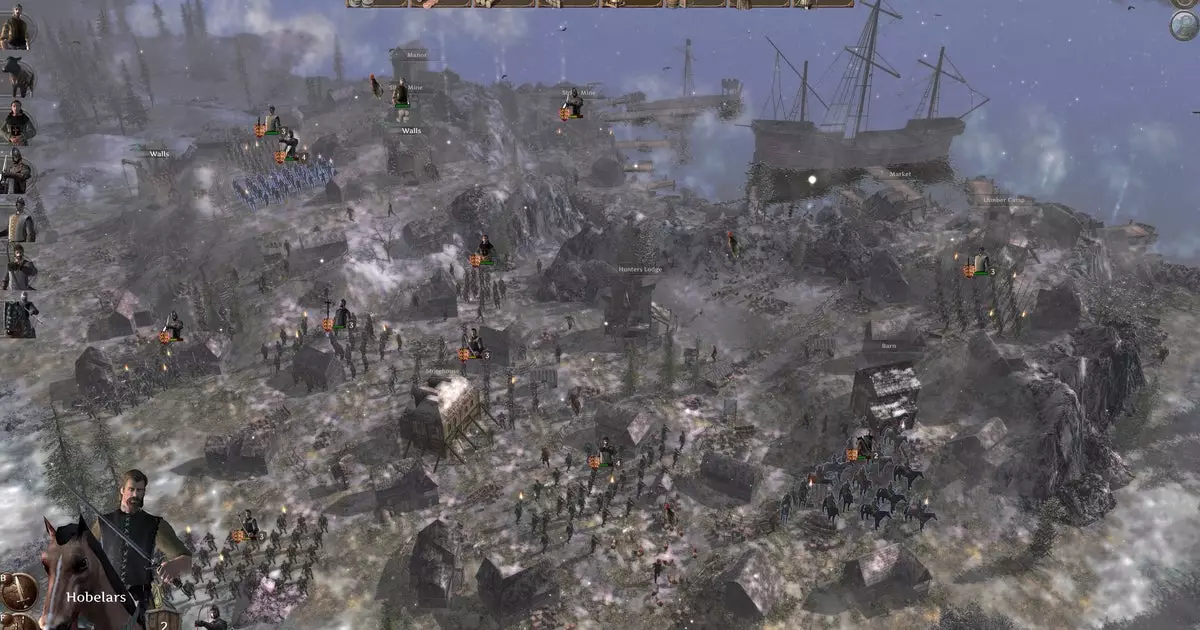The Crusades, often romanticized in pop culture and misappropriated by fringe groups, represent a deeply complex series of conflicts rooted in religious fervor and territorial ambition. Initiated by the Latin Christian Church in response to the Islamic conquests, these wars culminated in centuries of strife, conquest, and cultural exchange over control of the Holy Land. Understanding this tumultuous history is more crucial than ever, especially as modern interpretations, whether sarcastic memes or glorified portrayals in video gaming, can dilute the genuine resonance of these events. The notion of “Deus Vult” has been co-opted by alt-right factions, diminishing the rich historical context into simple soundbites stripped of nuance.
While delving into the Crusades, one could easily find themselves caught in a cyclical disillusionment, lost in the mire of poorly-researched narratives. Many contemporary gamers, however, find a gateway into this historical epoch through immersive games that invite them to engage with history while questioning the morality of their in-game actions. It is within this interactive landscape that players can confront the real implications of the medieval wars, even if the mechanics sometimes flirt dangerously with glorification.
Knights Of The Crusades: A Pivotal Gaming Experience
The recent early access release of *Knights Of The Crusades* introduces a grand strategy experience that ambitiously attempts to capture the intricacies of this historic conflict. Positioned as a fusion of tactical combat and strategic gameplay, it invites players to dive into the multifaceted interactions between Christian and Muslim factions as they vie for control over a historically rich and tumultuous setting. Developed by the minds behind the *Kingdom Wars* series, the game not only promises extensive replayability but also a dynamic map that reflects players’ choices, allegiances, and conflicts.
However, one must dissect how this game portrays historical events. The depiction of players raiding villages and battling for Jerusalem could easily romanticize violence, transforming morally ambiguous historical figures into archetypes of heroism. In essence, does the game present an insightful exploration of the textures of conflict, or does it serve as a playground for escapism that trivializes painful history? The promise of diversity in cultural representation will be a test for the developers: how will they handle the narrative of different factions without falling into stereotypes or biases that have plagued historical representation in media?
The Compression of History in the Digital Medium
The evolution of strategy games linked to historical narratives brings forth an important discourse on the representation of contentious topics. Titles such as *Crusader Kings* have made strides in transforming history into a complex, generative experience, embedding player choice and consequence into the fabric of gameplay. Yet, for players unaccustomed to the dense intricacies of feudal systems or religious ideology, the barrier to entry can heighten frustration rather than foster an appreciation of history.
The challenge lies in balancing engagement with authenticity. Developers need to tread carefully, ensuring that while players have the freedom to shape outcomes, they also encounter the often brutal realities of consequences. The Crusades extended beyond simple territorial disputes into a deeper exchange of culture, faith, and humanity—elements that cannot merely be reduced to mechanics centered around conquest and raiding. By fostering a space for players to question their motives and see the larger implications of their choices, a potential avenue emerges for cognitive dissonance to lead to deeper understanding.
Alternative Pathways of Historical Engagement
Looking beyond conventional gaming narratives, players who seek a richer engagement must embrace the myriad ways history can be explored. Forming a critical lens for understanding the Crusades is essential in the current sociopolitical climate. Video games like *Knights Of The Crusades* should ideally serve as starting points for broader investigations into the cultural, religious, and social labyrinth that underpins medieval history. Harvesting insights from well-researched literature, documentaries, and discussions facilitated by historians allow gamers to reconcile the digital battles with their chosen moral frameworks.
As excitement simmers around explorations into the Crusades through gamified experiences, the pivotal question lingers: how do we ensure these narratives honor the complex human experiences of the people involved? By critically engaging with both history and modern interpretations, players may discover that they have more agency than they realized—not just within their virtual conquests, but also in shaping the discourse around the narratives they choose to embrace. The challenge remains to construct spaces that inspire curiosity and provoke thought, rather than sidestepping the uncomfortable truths at the heart of these historic events.

